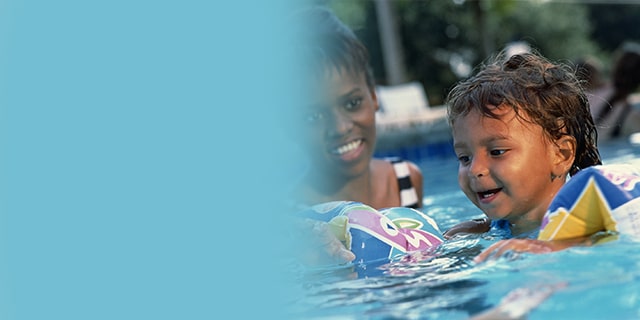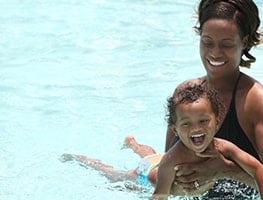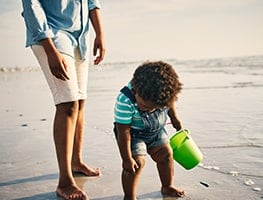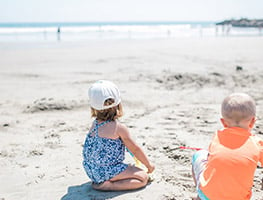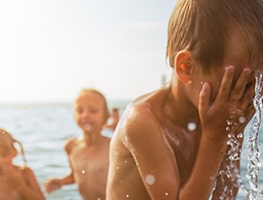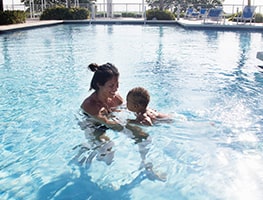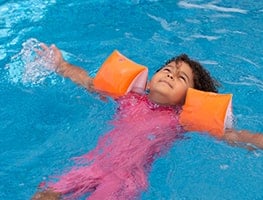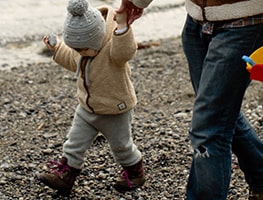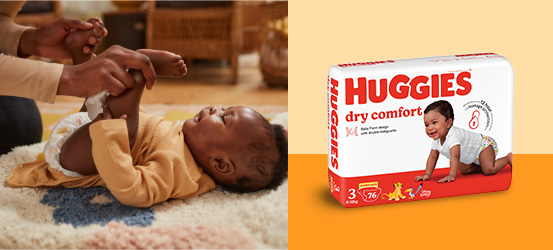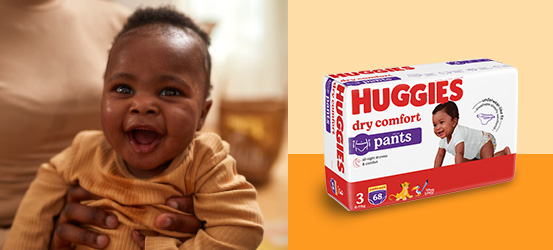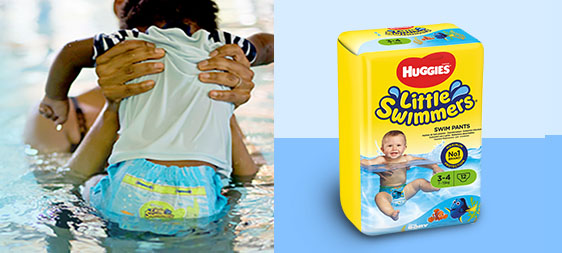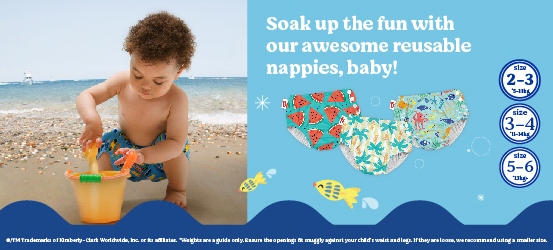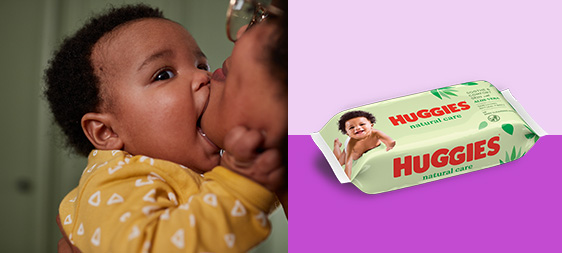As South Africans, we spend our summers around water, so it’s important to learn basic water skills as early as possible. It is recommended that children can take part in water activities from the age of 6 months. That means you can start having fun with your little one earlier! Although, enrolling them in formal swimming classes can wait until they are about 4.
The benefits of swimming from an early age:
-
Helps prevent infant drowning by encouraging water play with babies from the age of 6 months.
-
Provides health benefits for your child, which builds confidence, develops social skills and aids muscle development.
-
Encourages the invaluable bonding experience between parents and their children.
And finally to highlight that, by using Huggies® Little Swimmers swim pants, both you and your child can focus on learning and having fun without fear of embarrassing accidents and ensuring the water remains clean and safe for all to enjoy.
Remember, water play and swimming lessons won’t replace the need for constant supervision of children whenever they are around water. But the more actively involved you are with your child in the water, even in fun water play, the more they will learn to love water and feel at ease from the beginning.
Here are some international recommendations for water safety and children:
-
Children are not developmentally ready for formal swimming lessons until after their fourth birthday.
-
Programmes aimed at teaching your baby or toddler to swim are not a way to decrease the risk of drowning.
-
Parents should not feel secure that their child is safe in water from drowning after participating in such a programme.
-
When babies and children are in or around a body of water, an adult should always be within arm’s length to provide ‘touch’ supervision.
-
When participating in such a swimming programme, the course should always outline the risks of water, how to prevent drowning and the role of a parent / guardian when they are supervising and monitoring the safety of children in and around water.
For more information see Learn to swim or Parenting

